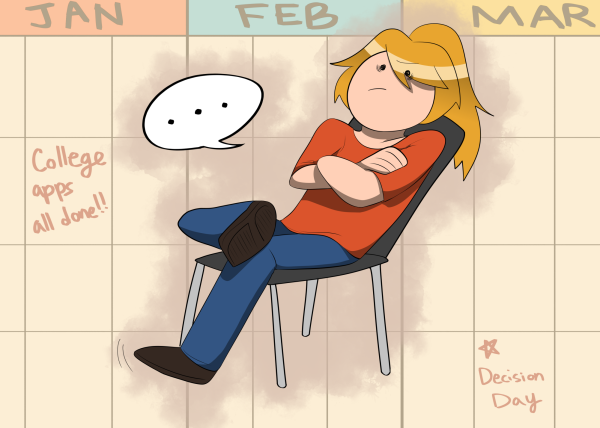A Noise Complaint
Shorewood’s Loud Announcements
June 9, 2021
Absolutely no one associates the word ‘quiet’ with high school. In movies, books, and TV shows, high schools are depicted as loud, rowdy, and over-stimulating. This can be a difficult environment for students to thrive in who have sensory processing issues, extreme noise sensitivity, are neuro-divergent, or on the autism spectrum.
Sensory processing issues, as defined by Understood, an organization that is dedicated to the destigmatization of mental disorders such as ADHD and dyslexia, are “difficulties with organizing and responding to information that comes in through the senses.”
If the lights in the classroom are too bright and if other classmates are whispering are just some ways that the school environment can negatively affect students with processing issues. One of the most detrimental are loud noises. Such as the intercom, for example.
Shorewood prides itself on being welcoming to all and having diverse student and teacher bodies respectively. If the Shorewood administration and students are truly devoted to creating a safe environment, which I think they are, the needs of all students need to be taken into consideration.
According to the US National Library of Medicine from the National Institute of Health, 8.4 percent of children have some sort of processing issue. That means possibly almost 1 in 10 students.
On the first day back in person this year, the announcements were so loud that I had to cover my ears, and I was half a classroom away from the intercom. Admittedly, I know it’s very difficult for leadership to get the volume just right. The daily song is played through a phone held up to a school phone which then gets pumped out to every nook and cranny in the school.
This is not a new issue, but coming back from participating in school from home and having complete control over my laptop volume to going to school and feeling trapped in the building because of how loud the music was, was upsetting. Friends who didn’t have sensory issues also noticed how loud both the music and the announcements were.
As someone who has sensory issues, it can feel pretty lonely because you have no clue if other people are experiencing something the same way you are. Luckily, I learned I wasn’t alone.
Hannah Wilson, freshman, said “I covered my ears when [the announcements] first came on, because they really surprised me. They were kind of over-stimulating so I put on my noise-canceling headphones after that before all the announcements started.” She and I both agreed that they were just loud enough to be grating, and just quiet enough that we didn’t know if a complaint was justified.
Britt Harris, activities coordinator, said that a staff member did complain after the first day so they tried to lower the volume. “It’s not an exact science. We talk into the phone. There is no speaker in the room, so there is no way to know what the volume is like in classrooms. We don’t have a volume control we can use.” she said.
If someone feels the need to wear headphones in order to feel comfortable, that should be accepted and welcomed, but if the announcements are so loud that even people who don’t have sensitivities find them too loud, imagine how they are for people with a hypersensitivity to noise.
Even though there isn’t a volume dial for the morning announcements, there needs to be an effort made to lower the volume of the intercom. It’s not a huge change, it would be as easy as holding the phone further from the receiver, and it would make a huge difference to a portion of the student body who may already be over-stimulated.












Naya • Jun 17, 2021 at 5:39 pm
This is an excellent article to bring awareness to how we can truly make schools more inclusive for all students.